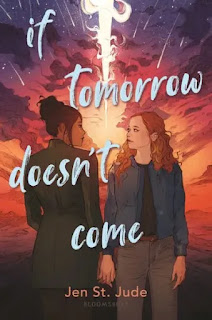In is the summer of 1942, the siege has been in place for a year. In that time, the weak have largely died off. The survivors are the resourceful. Liza is a survivor. Through petty theft and deceit, she has managed to scour up enough food to keep living. As the story begins, Liza is secretly burying her dead mother in order to prevent officials from discovering the death and taking away her Mom's ration card. Liza's best friend Aka comes across her after the disposal of the body and tells Liza that she herself is going to go to the "Mansion" (the headquarters of the NKVD -- the secret police) to earn some food. There's plenty of food for the officials and they are willing to share what they have with pretty young girls for a price. Liza begs Aka not to go, but what alternatives are left?
When Aka fails to return later, Liza goes out of her mind with fear for what has happened and starts to search for the girl. It's dangerous to poke at the lair of the NKVD and Liza's desperate search takes her in dangerous places where a combination of strong wits, sheer luck, and a bitter detremination to survive carry her through. Along the way, she renews acquaintances with two boys she knew from school who have taken drastically different paths: Luka (who hides underground and has abandoned his pride and humanity) and Maksim (who serves in the local constabulary and tries to enforce the law in the face of anarchy). Both boys try to help Liza, but in the end she has to take her own path to confront horrible secrets about the depths to which people will sink.
As grim and troubling as its subject matter, The Hunger Between Us explores what lines can and cannot be crossed and what survival really means. It's a brutal story populated with starvation and desperation. Scenes of physical and sexual violence, numerous references to (off-page) rape, murder, and cannibalism feature prominently. All of this, however, is just a setting for the very difficult decisions that Liza makes throughout the book. And she's definitely no saint. Her primary virtue is her ability to survive and by the end of the story she has plenty of faults to atone for. But observing her story in its context forces the reader to consider what they would do in the same place and that proves devastating. A powerful and memorable book and an unusual one of the genre.




















